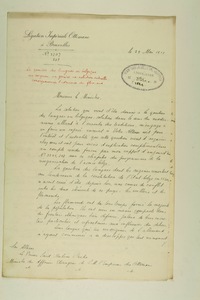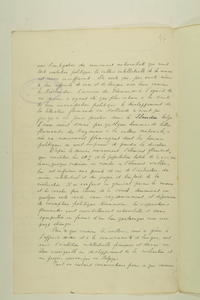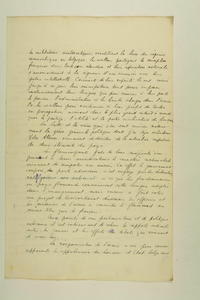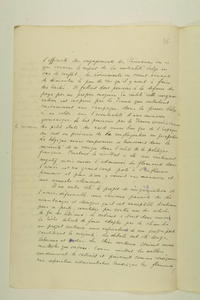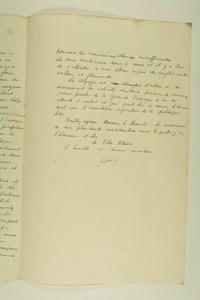Ottoman Diplomats
Letters from the Imperial Legation in Brussels (1849–1914)
Synopsis
La question des langues en Belgique. Ses origines, sa génèse, sa solution actuelle, conséquences de l'admission du flamand
Seïfeddin Bey reports about the Language Question in Belgium, describing its origins, its solution, and the consequences of the recognition of ‘Flemish’. He notes that he reported about this problem (summarized by him as ‘modernism encountering traditions’), because it seemed interesting for and relevant to the Ottoman Empire. Furthermore, it served as a supplementary explanation of his previous report on the planned reorganisation of the Belgian army. He situates the origins of Belgium’s language issues in 1830, when Belgium became independent. Then the conflict between the Walloons and the Flemings started. The Flemings continuously formed the demographic majority. The Flemish culture, however, was a more recent phenomenon, Seïfeddin Bey notes. Flemish / Dutch literature, for example, had not been popular in Flanders for a long time, because of Belgium’s political emancipation from the Netherlands. The recent impulse given to the Flemish culture by Flemish men of letters, created a Flemish movement, led by politicians. Sixty percent of the Belgian population was Flemish, but they were inferior on the intellectual and the educational level. They belonged to the lower class, without political views. Nevertheless, the Flemish aspirations were essentially nationalist and inward-looking. The Walloons on the other hand followed France’s intellectual evolution, and gave a remarkable élan to the development of Belgium’s civilization and economy. Aware of their superiority, they imposed their language and reserved the power, the administration and the important positions in the army for their own, which led to a crisis. The Flemings, strong by number, had a victory. Seïfeddin Bey mentions the concessions made by the (French-speaking) government: officials working in Flanders needed to be familiar with the Flemish language, and the army officers and army doctors needed to be bilingual. In the remainder of his report, Seïfeddin Bey tries to discern causes and consequences. France continuously conducted a campaign in the Belgian press, stressing the possibility of a German invasion. The admission of Flemish in the Belgian army was not only seen as a significant blow to the French influence, but also as a German manoeuvre and a German revenge. The reorganisation of the army posed a different problem: it was liberal and contrasted the aspirations of the Catholic majority. As a result of the long debates concerning the reorganisation, the Walloons opposed the government, whereas the Flemings found the government’s concessions insufficient. In this conflict, Seïfeddin Bey sees a reflection of the opposition between France and Germany.
Facsimiles
| Series | HR.SYS-222-73 |
|---|---|
| Place | Brussels |
| Date | 29-05-1913 |
| Author | Seïfeddin Bey |
| Recipient | Saïd Halim Pacha |
Names
How to cite
If you use this website for your own research, we kindly ask you to mention the following reference in your publications:
Consulted online at Ottoman Diplomats: Letters From the Imperial Legation in Brussels (1849–1914) (2014 Edition), Centre for Political History (PoHis), University of Antwerp, <http://dighum.uantwerpen.be/ottomandiplomats/>.
